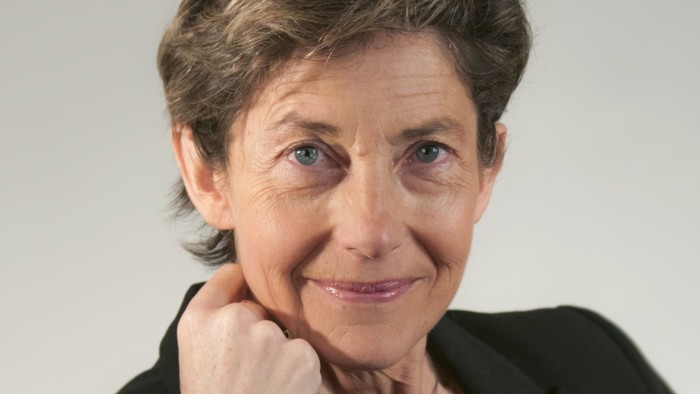Women in Business — Pascale Berthier, MBA director, EMLyon

Simply sign up to the Business education myFT Digest -- delivered directly to your inbox.
Pascale Berthier learnt to take risks early in life. She grew up in France, but at the age of three, her father’s job took Ms Berthier, her brother and her mother to New York City for a year, which gave her an early taste for cultural diversity.
She has a masters from the University of Lyon, an MBA from EMLyon and a PhD. Following university, Ms Berthier worked as a head hunter in consulting, but moved into the pharmaceuticals and retail industries after her MBA. Following her PhD, she joined EMLyon Business School as a professor in leadership and became the director of the MBA programme in 2015.
The professor lives close to Lyon, France. Her hobbies lie in her home city with its strong history of silk production. “I feel part of the ‘silk track’,” she says, and has travelled along the silk road in Turkey, Iran, Uzbekistan, India and China.
Why did you choose EMLyon?
I chose EMLyon because of its good teaching and friendly atmosphere. I experienced this sense of community and solidarity during my MBA there and this influenced my decision to join in a professional capacity after my PhD studies.
What is an average day at work like?
A mix of thinking, creating, developing new courses and teaching approaches as well as interacting with colleagues or external stakeholders.
What do you enjoy most?
Interacting with and meeting new people, especially in the pursuit of diversity at the school. I enjoy contributing to concrete results and making sure that we put the right people in the right place.
What are you finding the most difficult?
The administrative aspect of managing a programme is the biggest challenge.
What is the best piece of advice given to you by a teacher?
“Know yourself”. It was during the leadership and personal development course on my MBA and Professor Sylvie Roussillon, well known for her work on leadership and self-development, made a reference to Socrates: “An unexamined life is not worth living”.
Socrates is often cast in the role of the questioner, he questions because he knows nothing, knows he knows nothing, has nothing to learn, but it can help his followers to discover the truths they have in them. I learnt this questioning method and applied it in my personal and professional life. This led me to HR and teaching.
What is your biggest lesson learnt?
Give people a second chance. Just after I graduated from my MBA, I took on responsibility for HR and I had to fire a senior manager. I did not take on enough information and did what I had been told (I submitted to authority). This was very painful and I thought about the situation and learnt the lesson.
What is your favourite business book?
In Reinventing Organizations, Fréderic Laloux writes: “The most exciting breakthroughs of the 21st century will not occur because of technology, but because of an expanding concept of what it means to be human.”
This book is about collective intelligence and the historical organisational frames: the lesson is that considering the complexity of organisations, the numerous interactions and the number of stakeholders we have no choice but to be collectively intelligent, which means co-operating, sharing and developing sustainable relations.
Which three people, living or dead, would you invite to a business meeting
I would invite the Dalai Lama for his wisdom and to get insights about the very exciting experiences done in neuroscience with Buddhist monks. I would invite Steve Jobs, for his creativity and design thinking approach, and Xavier Niel, founder and majority shareholder of Free, the French internet service provider, for his concern for less favoured people.
What has been your best business trip?
Japan, when I was working in the pharmaceuticals industry. I discovered a completely different world: a mix of technical/operational innovation and traditional relationships — a “high context” society as ET Hall would describe it. You have few clues and you have to adjust.
If you could do it all again, what would you do differently?
I would probably take more time to develop my artistic skills (I like to paint) as it enhances my creativity and helps me step back. I am convinced that you can connect many fields together and that our life should be seen as a whole.
Comments